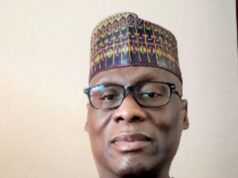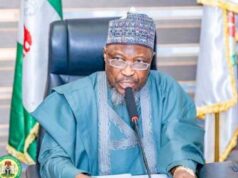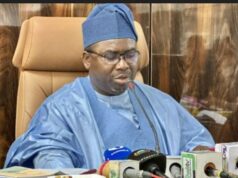
The 2023 general elections in Nigeria have come and gone: it started on February 25 with the Presidential and National Assembly elections and was concluded on March 18, with the election of State Governors and members of the State Houses of Assembly.
The elections, to say the least, were far different from the previous ones. As a matter of fact, there was never a time in the history of this country as we journey through democratic governance, that elections were so coloured dirty with ethno-religous rivalry, than the 2023 general elections, with particular reference to the Presidential election, held on February 25.
The Presidential election was contested basically along the line of the two major religions – Islam and Christianity – in the country. The ethno-religious factor was unmistakably and unashamedly displayed between Peter Obi, a Christian, behind whom about 95 percent Nigerian Christians queued, and three other major contestants: Asiwaju Bola Ahmed Tinubu of the All Progressives Congress (APC), Atiku Abubakar of the Peoples Democratic Party (PDP) and Rabiu Musa Kwankwaso who are all Muslims.
The intensity of the religious factor was ignited, willy-nilly, by the APC and its Presidential candidate, through the introduction of Muslim-Muslim ticket. That was the fact which Tinubu, a Muslim from the Southwest, in picking Alhaji Shettima, a Muslim from the Northeast as running mate, downplayed.
Majority of the Christians from across the country kicked against the same faith combination, but APC/Tinubu would not listen, for whatever reason, justified or not.
While the APC was on that suicidal move, another major party, PDP, floated a Muslim Fulani from the North, Atiku Abubakar as its Presidential candidate, against the cry of people from the Southern part of the country that Northerner should not go for the Presidency after another Northerner, President Muhammadu Buhari, would have served two terms of eight years.
Amidst such scenario, Peter Obi surfaced from an obscure corner in a weak political platform, the Labour Party. The aggrieved Christians from the Southern part of the country and the minority Northern Christians saw Peter Obi not only as a saviour from what they considered as “marginalization, but an alternative to their quest to have one of them as President.
Peter Obi did not hide the fact that he had emerged as purely a candidate for the Christians, and Igbo speaking population across the country in general and the Southeast in particular.
So much he boxed himself into the ethnic religious corner that he lost the sense of reaching out, even covertly, to Muslims anywhere in the country. He was obviously comfortable visiting churches and appealing to the emotions of Christians, who also felt aggrieved by the same faith system, adopted by the APC/Tinubu. The Obi’s sympathizers ignored the saying that two wrongs cannot make a right.
Christians and Igbo in Southeast as well as those in other parts of the country embarked on mobilizing themselves for Peter Obi, in ways they had never done on any collective national project before. Churches across the country and in villages and settlements turned themselves into potent political structure for Peter Obi, who was dismissed by political pundits as a candidate without political structure.
As it was posited earlier, the APC/Tinubu triggered off the ethno-religious political system, when it was obvious that Nigeria’s democracy has not matured to make people look beyond such issue.
As the saying goes, if you point a finger at a person, the remaining four are pointing back at you, asking “what if it’s you?” In other words, if Christians today, decide to go into same faith Presidential contest, would Muslims welcome it? This is where Christians got the sympathy of rational thinkers. And it is in this context that the rise by Christians to go into protest vote against not just the APC but other parties that showed a semblance of domination or traits of marginalization is located.
To cleanse the country of the putrid ethno-religious Augean stables as the elections came to an end, Peter Obi should understand that he owes Christians in the country a lot of gratitude. That he should thank them for their massive votes that elevated his political status and profile far beyond even his own imagination.
In fact, if it were not the circumstances that forced Christians to vote for him en-mass, he would have ended up, at best, being confined to his tribal enclave in the Southeast. And above all, Peter Obi should start now to build bridge across the ethnic and religious divides, if he still have the ambition to contest election in future and win to be President of this country.
He needs to start creating beneficial and friendly interaction with Muslims in the North, leaders of Yoruba dominated Southwest and other relevant political blocks in the six geopolitical zones of the country.
Mutual respect should be allowed to flourish once more between Igbos wherever they live and doing legitimate businesses and the natives of the places, believing that businesses can thrive only where peace, love and friendliness permeate the environment.
The leadership of the PDP, being the major opposition in the country, needs to come together to resolve issues that led to the disintegration ahead of the just concluded elections. Atiku Abubakar and his team should be experienced enough to know that elections cannot be won by ignoring “the little things.”
And above all, the President-elect, Asiwaju Tinubu needs to make the mending of the broken political fence one of the top priorities of his government, and urgently so.
He can involve the people from contending forces in running the government. He really needs to set strong machinery in motion to cleanse the country of the putrid ethno-religious Augean stables.
Of course, Tinubu may not find it difficult to mend the fence in the polity, knowing that his wife is not only a devout Christian but a strong church leader, even as most of his right hand men and women are Christians.
In all, Muslims and Christians and other actors that shaped the 2023 general elections should understand the reality that every election in Nigeria and elsewhere always bring some unique feature to play, and that the feature in the just concluded elections was within that context.
With the elections over, the citizenry, irrespective of ethnic and religious group, should return to the reality of the hardness of life and living today, and contribute to the unity and progress of the country to make the pursuit of things that would make life better for us all, easier.







My brother I beg to disagree with you, that we are not matured for Muslim Muslim ticket, Where were you when the late MKO of blessed memory floated same faith ticket and won but later scuttled by the military junta for selfish reasons in 2993 ? The essence of picking a running mate is to help gather votes and not to become an electoral liability as christian from the north will surely be